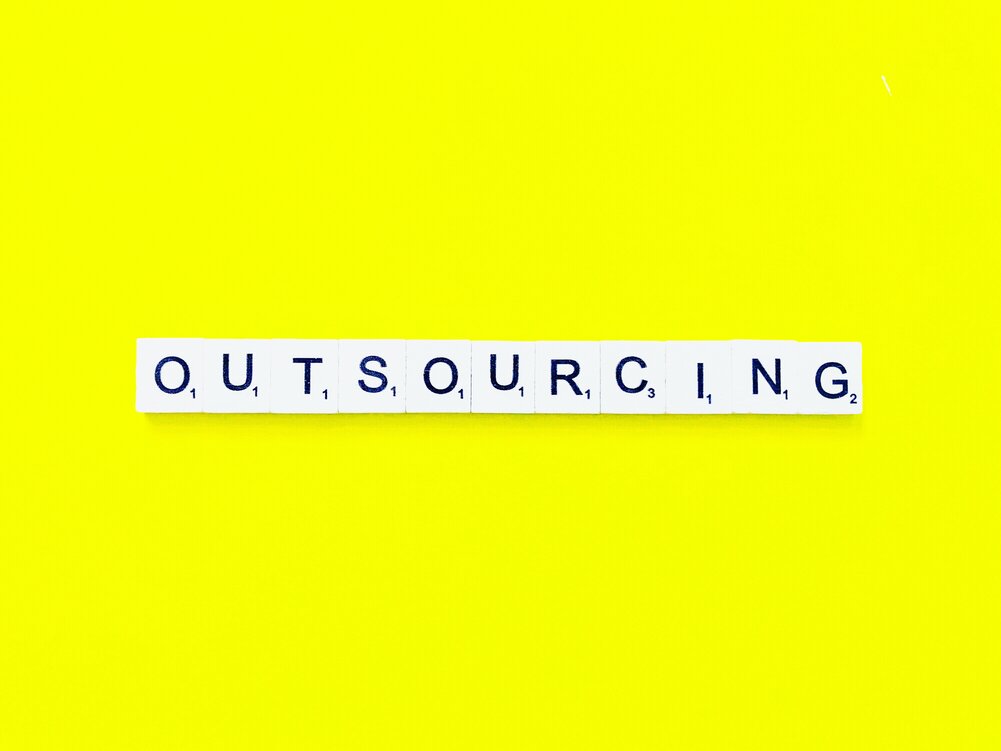Outsourcing has been a common practice in the world of business since the late 1980s. Today, you will be hard-pressed to find a major company that doesn’t resort to it. Third-party companies know how to effectively provide specialized services, and are able to do so at a lower cost thanks to alternative compensation structures with employees. If you are interested in utilizing the services of a third-party outsourcing company, this guide will tell you everything you need to know.
What are outsourcing services?
Outsourcing services refers to the practice of hiring external organizations to perform functions that would otherwise be performed internally. This may include the use of outside companies for IT support, marketing, sales, accounting, customer service, legal advice, engineering, consulting, research, development, etc.
Types of outsourcing services
In today’s job market, virtually every role can be outsourced. Of course, for optimal efficiency, most companies usually only outsource one or two components of their business. As you can imagine, there are numerous types of outsourcing services to choose from.
Here are a few:
- IT outsourcing
- Manufacturing outsourcing
- Project outsourcing
- Process outsourcing
- Operational outsourcing
- Financial outsourcing
- Human resources outsourcing
- Health and safety outsourcing
- Marketing outsourcing
- Technology outsourcing
- Etc.
How much does it cost to outsource marketing?
How outsourcing works
The concept of outsourcing is simple: you hire an outside company to perform tasks for your company. Most companies adopt this practice in order to focus on their area of expertise. In order to successfully outsource, a company first has to identify its own areas of operation that are not core competencies, as this will highlight what needs to be outsourced. They then have to find a third-party provider that specializes in that specific type of outsourcing, and agree on a price for their services.
What are the benefits of outsourcing?
Cost savings
One of the major benefits of outsourcing is the money you save. You don’t have to worry about paying individual team members to do the jobs that need to be done. Instead, you can pay a flat rate to an outsourcing company, thereby making it an extremely cost-effective practice.
The reduced costs associated with outsourcing come from more than just labor costs. You also save on overhead, equipment, and technology. It is therefore worth outsourcing certain parts of your business that are integral, but not core competencies, because you maintain the quality of your service while saving money on smaller jobs.
Focus on core competencies
When you hire an outsourcing agency, you free up more time to focus on your specialized skills. For example, if you run a software development company, your skills lie in the tech field. You can therefore delegate administrative jobs to an outsourcing company. By outsourcing peripheral jobs, you have more time to focus on the elements of your business that are going to generate income.
Increased efficiency
Having parts of your company outsourced to a third party will increase the overall efficiency of your business. After all, the client companies who perform the outsourced work are specialists in their job. Outsourcing your peripheral tasks to them will ensure that they are performed efficiently, and that you have more time to focus on your own efficiency in your specialized field.
Access to skilled resources
Instead of spending an enormous amount of time and money finding the perfect hire to fill your positions, you can hire a company that has a network of highly-trained individuals with the skills required to perform these jobs. This opens you up to an entire talent pool.
Outsourcing vs. offshoring
Outsourcing and offshoring sound similar, but they are actually completely different business practices. What they have in common is that they are both used to save time and money. As mentioned, outsourcing involves the collaboration with a third party to perform your company’s peripheral tasks. Offshoring, on the other hand, involves sending jobs to your overseas branches.
With outsourcing, your jobs are being done by workers who are external to your business, whereas with offshoring, you are still using your in-house team members. However, they are performing their tasks in other countries.
How to select a service provider
It can be a difficult process to find an outsourcing service provider, as there are many to choose from. However, there are some things you can look for in order to find a solution that is compatible with your business:
- Identify the type of agency you want. Are you looking for an agency with multiple specialties who can cover a wide range of jobs, or do you want an outsourcing service that only focuses on a single service?
- Find a cultural fit. It is essential that the provider you choose aligns with the values of your company. Otherwise, you may experience compatibility issues. Additionally, being associated with such a company might affect your brand.
- The size of the agency. You need to make sure that the company you employ is big enough to handle the demands of your business. Otherwise, you will end up with inefficient processes.
- Understand their expertise. You need to be sure that the provider you are hiring has enough knowledge surrounding the specific skills you are seeking.
- The price. It is worth shopping around to see which providers can offer you the best price. Since the outsourcing industry is a response to a demand for cost efficiency, you want to make sure that you’re getting the best possible deal.
- The provider’s flexibility. It is never a good idea to lock yourself into a tight contract, as it gives you no room to change your mind if the partnership doesn’t work. You need to find a company that is willing to be flexible.
Outsourcing services
If you’re looking for reliable outsourcing services, TelUp is here to help. We aim to provide you with skilled workers who are looking for remote working opportunities. We focus on bringing the best possible talents to your business.





